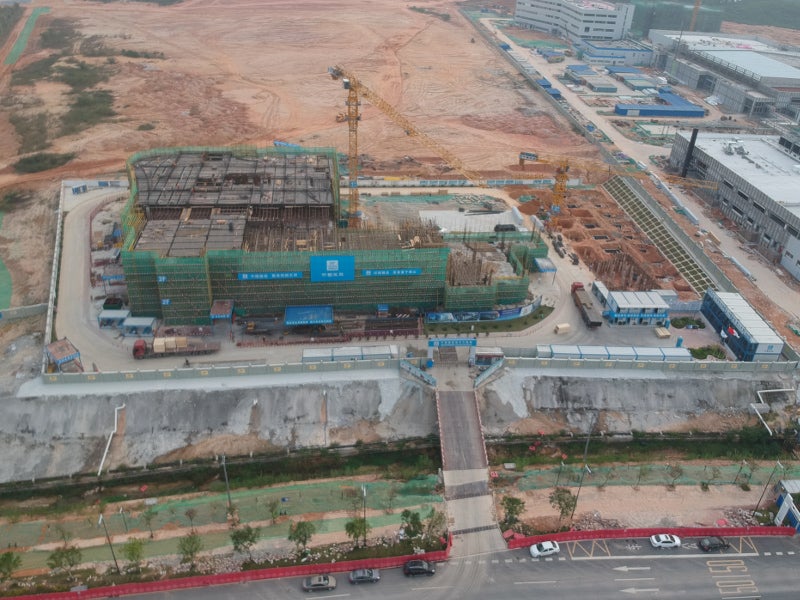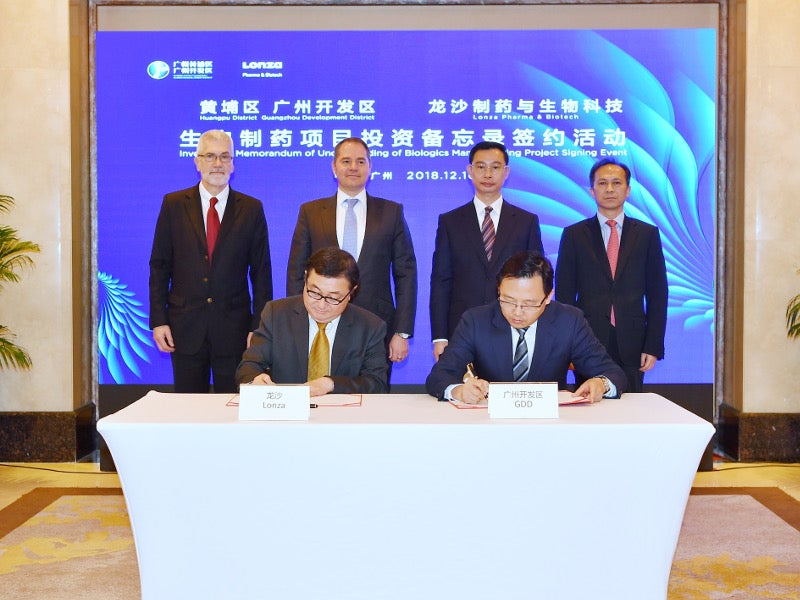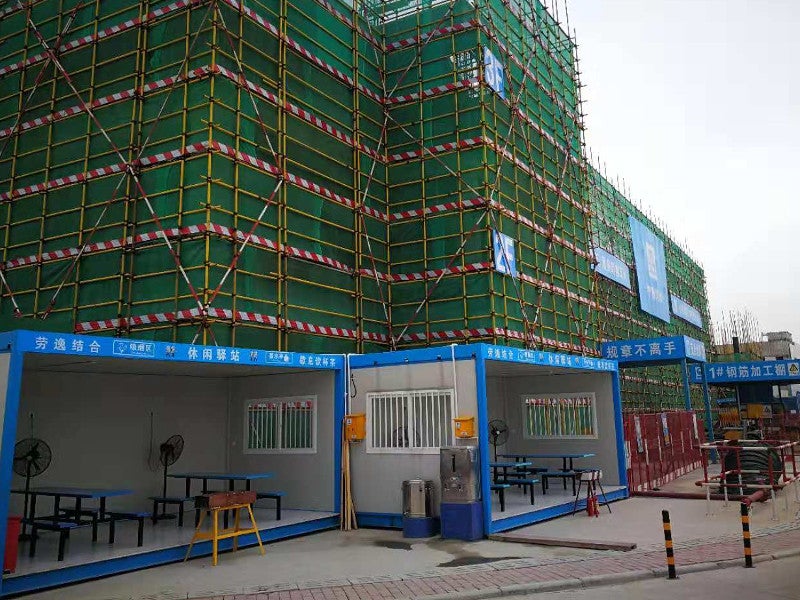Swiss biotechnology company Lonza and US-based healthcare company GE Healthcare are developing a biologics facility in Guangzhou, China.
The facility will be based on GE Healthcare’s KUBio platform and will provide development and manufacturing services for drugs in the clinical and commercial stages of development.
The project is part of a larger initiative between Guangzhou Development District (GDD) and GE Healthcare to support biopharmaceutical manufacturing in China. Lonza signed a memorandum of understanding (MoU) with GDD for leasing the site in December 2018.
The facility is expected to be operational by 2020 and will serve as a strategic base for Lonza in China. It will allow the company to respond to the growing needs for high-quality contract development and manufacturing organisation (CDMO) services in the country.
The project is expected to generate 160 jobs in the region.
Lonza biologics facility details
The facility will be developed on a 17,000m² site and feature 6,500m² of laboratory space and a KUBio facility. It will provide biologics development and manufacturing services.
The labs will utilise Lonza’s proprietary platforms for cell-line construction, process development, cell banking and the GS gene expression system®. They will also house pilot labs.
The KUBio unit will utilise GE Healthcare’s single-use biomanufacturing platform along with Lonza’s automation platforms for manufacturing clinical and commercial biologics batches. It will also house 1,000l and 2,000l bioreactors for small-scale good manufacturing practice (GMP) production.
Details of GE Healthcare’s KUBio platform
KUBios are prefabricated biomanufacturing facilities that house bioprocessing manufacturing equipment. The facilities can be used to produce biologics such as monoclonal antibodies (mAb) or vaccines.
The KUBio platform is said to be cost-effective compared with traditional facilities and can be set up for production within 18 months. KUBios are also claimed to use less water and energy than traditional facilities.
Process technology at Lonza biologics facility
The Guangzhou biologics facility will use Lonza’s cell line selection process, which is devised to recognise highly productive clones and deliver current good manufacturing practice (cGMP) material within 14 months of receiving a DNA sequence.
The process reduces the production cost of biopharmaceuticals and produces a high yield of product with the desired critical quality attributes.
The facility will also use Lonza’s GS gene expression system®, which produces standard format monoclonal antibodies, bispecifics, novel glycoproteins and other complex molecules.
The system uses a viral promoter and extraction to accelerate the development of high-yielding and stable mammalian cell lines.
Marketing commentary on China’s biologics market
A baby boom in the 1970s in China has led to the population facing a range of chronic health issues such as cancer and autoimmune diseases. Biologics are one of the most effective treatments for such diseases, although their availability in the country is limited.
Lonza’s new facility will enable the company to tap into the growing demand for biologics in China. The country has restructured its regulation of the drug industry by allowing license and filing holders to establish their own manufacturing and distribution operations in the country.
In 2016, the State Council implemented a drug marketing authorisation holder (MAH) programme as a preliminary programme. Under the programme, research organisations and individual Chinese citizens can hold marketing authorisation without owning any manufacturing equipment.
The state’s policies are to promote domestic companies and multi-nationals to set up manufacturing in China, and to make biologics more accessible to patients and healthcare providers.






